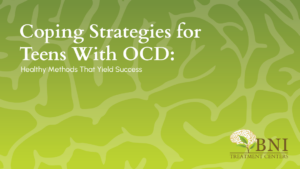The teenage years are often an exciting yet problematic developmental phase in one’s life. Teens witness major physical and emotional changes as they pave their way into the adult stage. While this growth phase is often characterized by curiosity and self-discovery, it can be a trying period for millions. Among these challenges they face is childhood trauma, which can exacerbate personality disorder.
Childhood trauma can have several negative consequences, often long-term. These effects include worsened mental health and borderline personality disorder. Medical experts have linked childhood trauma to personality disorder, revealing that the former can trigger the latter. Patients with this condition exhibit signs such as emotional dysregulation, suicidal thoughts, and impulsive decisions. The National Institutes of Health survey mentions about 77% of adolescents with personality disorders experienced childhood trauma in abuse, which later developed risky behaviors. This shows the magnitude of childhood trauma’s impacts on mental health.
Childhood Trauma and Personality Disorders Explained
Childhood trauma means adverse events or experiences during an individual’s early years. These events can take various forms, such as physical and verbal abuse, domestic violence, parental emotional neglect, or witnessing a natural disaster like an earthquake. As stated, childhood trauma can have serious lifelong effects on the person, some of which may last for a lifetime.
On the other hand, personality disorders are mental conditions typified by consistent, negative thought patterns and behaviors that veer from the typical. This disorder can affect a person’s ability to start and secure healthy relationships and continue their daily lives. A common personality disorder is borderline personality disorder, which results in one’s inability to regulate emotions or create interpersonal interactions.
The connection between childhood trauma and personality disorders is complicated. Research confirms that personality disorder manifests in early adolescence. During this stage, teenagers undergo emotional and psychological transformation. Sometimes, the phase can uncover issues that may emerge as borderline or antisocial personality disorder. However, researchers reveal this disorder doesn’t just manifest out of nowhere. They can be triggered by childhood traumatic experiences, which shape teenagers’ beliefs about themselves and, by extension, society. This potentially leads to emotional and behavioral disturbances, which are challenging to deal with.
Signs of Personality Disorder
One significant sign of personality disorder is compulsive lying. Childhood trauma and compulsive lying are linked to personality disorder. The individual uses compulsive lying to cope with situations or protect themselves from further harm. Teenagers who frequently indulge in this live in falsehoods, make hyperbolic statements, and conceal their true feelings.
Compulsive lying is a symptom that can tell a lot about a teenager’s mental health. Therefore, it shouldn’t be dismissed as a simple behavior. Instead, it’s crucial to recognize it early on to foster quick recovery. It can signify that a teen is dealing with unresolved emotional and psychological problems caused by childhood trauma.
Other signs for a teen with a potential personality disorder include risky and impulsive behaviors, frequent and intense mood swings, difficulties forming relationships, and fear of abandonment. Recognizing these signs is paramount for early intervention, so if you see a teen grappling with these problems, encourage the person to seek immediate help.
Many healthcare professionals, like those in BNI, can provide the affected teenager with more guidance, counseling, and therapy. These solutions can address childhood trauma and personality disorder and create healthier coping strategies, leading to a more fulfilling life.
Recovery at BNI Treatment Centers
The excellent news is that personality disorders can be treated, and people live normally after treatment. Healthcare professionals usually use the following treatments for personality disorders and childhood trauma;
- Psychotherapy
- Cognitive-behavioral therapy
- Dialectical behavior therapy
These behavioral health treatment options for teens aim to find the cause of the disorder and create healthier ways to manage the condition.
The road to recovery might be challenging, but teenagers can manage the disorder with the proper support and treatment. Patience, understanding, and commitment are vital traits that must be imbibed for a stable life.
BNI Treatment Centers Offers a Pathway to Recovering from Childhood Trauma and Personality Disorder
Childhood traumas and personality disorders are intricately intertwined, which makes them difficult to treat without a suitable medical facility. Identifying and addressing childhood trauma’s effects on teens requires a team of experienced doctors specializing in mental disorders.At BNI Treatment Centers, we offer comprehensive medical healthcare to teenagers with personality disorders. Our adolescent mental health treatment programs and support are tailored to help teens navigate the challenges and live normally. Reach out to us today for more information about personality disorders in teens.



